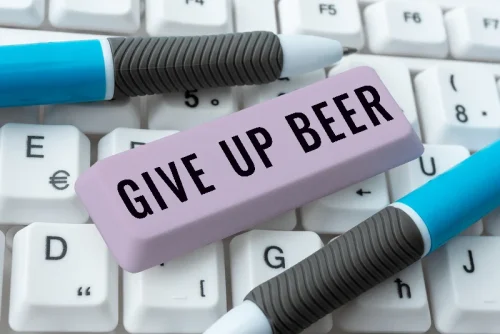
And medications for high blood pressure can be affected by alcohol. More than two drinks a day can increase your chance of having high blood pressure. It’s important to consider that the inverse association between total alcohol intake and decline in kidney function was attenuated among women, smokers, and individuals aged 60 years or older. This suggests that individual characteristics and behaviors may interact with alcohol intake to influence kidney function. If you have early-stage kidney disease, some doctors may allow limited alcohol intake—usually no more than one standard drink per day for women and two for men. However, this depends heavily on your overall health profile and medications.
The Kidneys and Their Functions

There is no research to show a direct link between kidney pain and alcohol. People who are dehydrated are at an increased risk of developing kidney stones. Having risk factors does not mean that you will definitely develop kidney disease.

Special Considerations for Individuals with Pre-existing Conditions
- Laube and colleagues (1967) suggested that both cellular enlargement and cell proliferation contribute to such nephromegaly.
- For example, older adults and women should drink less as their kidneys filter alcohol more slowly.
- Blood in the urine (hematuria) after drinking alcohol may be a sign of kidney damage.
Healthy kidneys ensure that such proteins stay out of a normal urine flow; kidneys suffering from chronic alcohol abuse, on the other hand, cannot stop proteins (like albumin) from “leaking” into urine. The National Kidney Foundation warns that albuminuria can be an early sign of kidney disease, which will require nephrology treatment. If you or a loved one has pre-existing kidney issues or are concerned about alcohol consumption and kidney health, it may be time to seek professional help.
- The answer to this version of the “chicken-and-egg” question remains to be elucidated.
- This massive induction of CYP2E1 in the kidneys results in oxidative stress that modifies phospholipids in cell membranes.
- Alcohol interferes with the brain’s communication pathways and can affect the way the brain looks and works.
Direct Effects of Alcohol on Kidney Health
Non-prescription pain relievers like NSAIDs reduce kidney blood flow when used regularly. Contrasting results emerge from the Multi-Ethnic Study of Atherosclerosis, which examined 6,259 adults across diverse ethnic backgrounds. The kidneys’ filtering units, called nephrons, contain tiny blood vessels (glomeruli) that become vulnerable to alcohol’s effects. Even moderate alcohol consumption temporarily increases blood flow to the kidneys, altering filtration pressure. While these acute changes typically normalize after alcohol processing completes, repeated exposure may contribute to long-term structural adaptations.
How does alcohol consumption lead to dehydration affecting kidneys?
- To grasp how alcohol affects the kidneys, it’s essential to understand its metabolism.
- Chronic kidney disease is when the kidneys are damaged so severely that they completely lose the ability to filter waste and fluids out of the blood.
- If you have been placed on a fluid-restriction diet, you will need to count the alcohol.
Drinking alcohol can trigger muscle cells to break down and release phosphorus into the bloodstream. Alcohol can impact levels of phosphorus bringing them up too high as well as dropping them too low. We will cover more about how alcohol changes hydration levels in more depth below. However, 3 glasses of wine would contribute over 500 milligrams potassium. Wine and beer are typically low in potassium (less than 200 milligrams per serving). Seeing a doctor as soon as possible helps ensure appropriate treatment and can reduce the risk of complications.
Can Kidneys Recover from Alcohol Damage?
- Genetic and individual differences sometimes need to be taken into account 78.
- When alcohol is consumed, it can disrupt normal kidney function.
- Dehydration linked to alcohol consumption can contribute to more concentrated urine, which can foster the formation of kidney stones.
- People concerned about developing kidney stones due to alcohol use should drink in moderation.
Reducing alcohol intake is crucial for maintaining kidney health. Long-term, heavy alcohol use can lead to acute kidney injury, chronic kidney disease, and kidney failure. Moderate alcohol use may have no relation to kidney disease, but you should limit alcohol intake to protect your kidneys and overall health. Some of the first signs of kidney damage from alcohol are increased urination frequency, changes in urine, weakness, and fatigue. Alcohol can impair renal function, especially when consumed excessively. The kidneys filter waste and maintain fluid balance, but high alcohol intake disrupts these processes, potentially leading to acute kidney injury and chronic kidney disease.

The verdict: Balancing risks and personal choice
The amounts of these substances must be held what is alcoholism within very narrow limits, regardless of the large variations possible in their intake or loss. The kidneys are the organs primarily responsible for regulating the amounts and concentrations of these substances in the extracellular fluid. Preventing the risk of kidney disease entails taking care of your heart and weight.

Free by the Sea Can Help You Overcome Alcohol Addiction

Doctors often recommend that people with CKD limit their alcohol consumption. With chronic pancreatitis, you could lose the ability to produce or use insulin. This can result in diabetes, which increases your risk for kidney disease. Over time, high blood sugar levels can reduce your kidneys’ ability to function. Drinking heavily can kidney pain from drinking increase the risk of high blood pressure and Type 2 diabetes, for example. Both of those conditions are the most common causes of chronic kidney disease in the United States.
‘I don’t know if I would be here’ without it: Kidney patients reflect on the impact of Medicaid in their lives
These disturbances increase the kidneys’ workload in restoring acid-base balance through formation of an acidic or basic (i.e., alkaline) urine. For instance, the opposite of respiratory alkalosis can occur when a person becomes extremely intoxicated. Because alcohol is a central nervous system depressant, it may slow the rate of breathing as well as reduce the brain’s respiratory center’s sensitivity to carbon dioxide levels.



